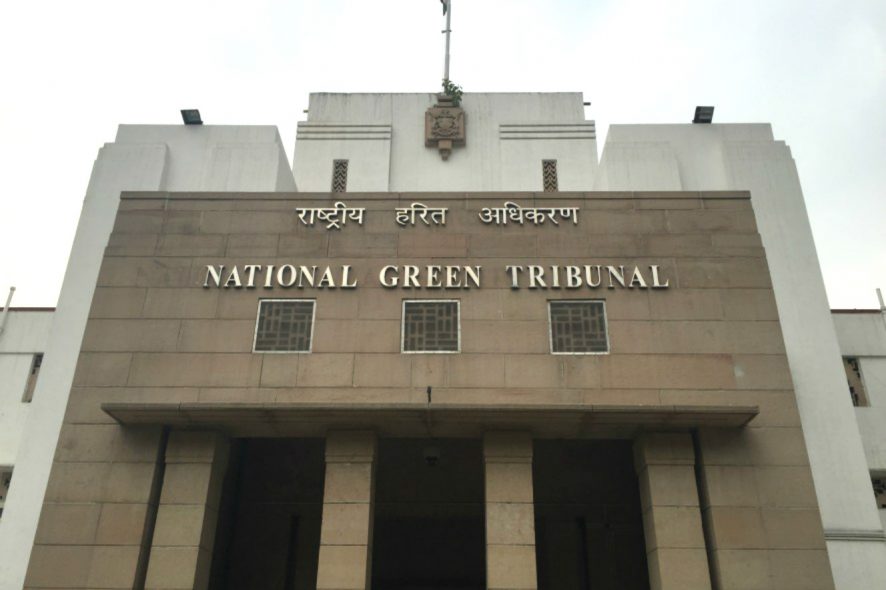National Green Tribunal (NGT): The Full Bench of Justice Adarsh Kumar Goel (Chairperson) and Sheo Kumar Singh (Judicial Member), Dr Stayawan Singh Garbyal (Expert Member) and Dr Nagin Nanda (Expert Member), addressed the issue in regard to the restoration of the water bodies.
Issue for consideration in the Original Application:
identification, protection and restoration of water bodies in Gurgaon in Haryana.
Further, the scope of the above-stated issue was extended to the entire State and then to the entire country in the interest of the environment protection.
Bench stated that the steps taken in the above regard can hardly be held to be adequate.
Protection of water bodies serves a great public purpose and is essential for the protection of the environment. It helps not only aesthetics but also water availability, aquatic life, microclimate, recharge of groundwater and maintaining e-flow of the rivers.
Further, the bench stated that,
Under the Public Trust Doctrine, the State has to act as trustee of the water bodies to protect them for the public use and enjoyment for current and future generations.
Court noted the observations of the Supreme Court in the above-mentioned subject:
1. State of T.N. v. Hind Stone, (1981) 2 SCC 205, at page 212:
“6. Rivers, Forests, Minerals and such other resources constitute a nation’s natural wealth. These resources are not to be frittered away and exhausted by any one generation. Every generation owes a duty to all succeeding generations to develop and conserve the natural resources of the nation in the best possible way. It is in the interest of mankind. It is in the interest of the nation.”
2. Hinch Lal Tiwari v. Kamala Devi, (2001) 6 SCC 496, at page 500:
“13. It is important to notice that the material resources of the community like forests, tanks, ponds, hillock, mountain etc. are nature’s bounty. They maintain delicate ecological balance. They need to be protected for a proper and healthy environment which enables people to enjoy a quality life which is the essence of the guaranteed right under Article 21 of the Constitution.”
3. T.N. Godavarman Thirumulpad v. Union of India, (2002) 10 SCC 606, at page 628:
“… … …33. … As was observed by this Court in M.C. Mehta v. Kamal Nath our legal system based on English common law includes the public trust doctrine as part of its jurisprudence. The State is the trustee of all-natural resources which are by nature meant for public use and enjoyment. The public at large is the beneficiary of the seashore, running waters, air, forests and ecologically fragile lands. The State as a trustee is under a legal duty to protect the natural resources. These resources meant for public use cannot be converted into private ownership.”
4. Jitendra Singh v. Ministry of Environment, 2019 SCC Online 1510 pr 20
“…. …. …
20. …. Waterbodies, specifically, are an important source of fishery and much needed potable water. Many areas of this country perennially face a water crisis and access to drinking water is woefully inadequate for most Indians. Allowing such invaluable community resources to be taken over by a few is hence grossly illegal.”
Besides the above-stated observations,Tribunal also noted the advisory issued by the Ministry of Urban Development, Government of India, Central Public Health and Environmental Engineering Organization on “Conservation and Restoration of Water Bodies in Urban Areas”.
Further, the Bench also stated that there is need for continuous planning and monitoring at National, State and District Levels.
Taking a note from CPCB’s report, Bench agreed that there needs to be a single agency in every State/UTs to be set up.
The above work may either be assigned to the Wetland Authority of the State or the River Rejuvenation Committee or to any other designated authority such as the Secretary, Irrigation and Public Health/Water Resources.
The instant application was disposed of with the following directions:
- All States/UTs may designate a nodal agency for the restoration of water bodies, wherever no such agency has so far been designated.
- Under the oversight of the Chief Secretaries of the States/UTs, the designated nodal agency may:
a. hold its meeting not later than 31-01-2021 to take stock of the situation and plan further steps, including directions to District authorities for further course of action up to Panchayat levels and to evolve further monitoring mechanism as well as Grievance Redressal Mechanism.
b. Submit periodical reports to the CPCB/Secretary Jal Shakti Government of India. First such report may be furnished by 28-02-2021.
- Central Monitoring Committee for monitoring remediation of 351 polluted river stretches, headed by the Secretary, MoJS may monitor the steps for restoration of water bodies by all the States periodically.
In view of the above application was disposed of. [Lt. Col. Sarvadaman Singh Oberoi v. Union of India, 2020 SCC OnLine NGT 862, decided on 18-11-2020]






